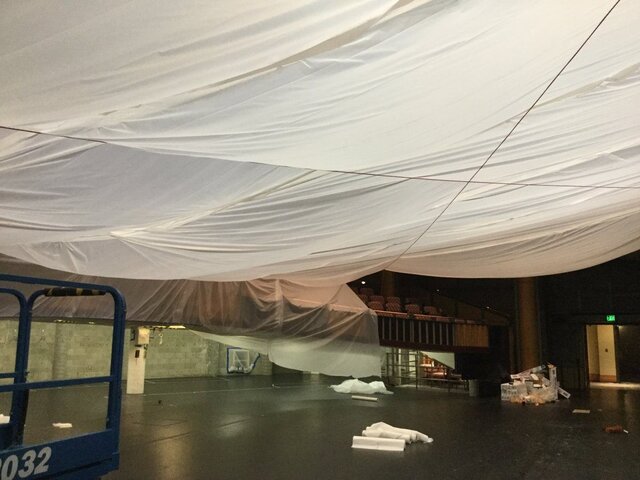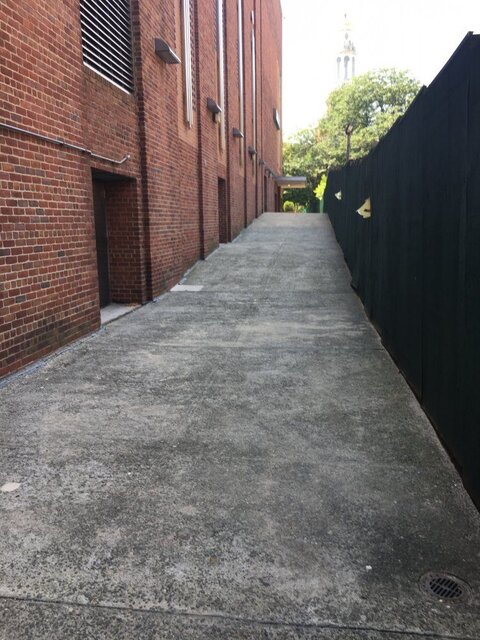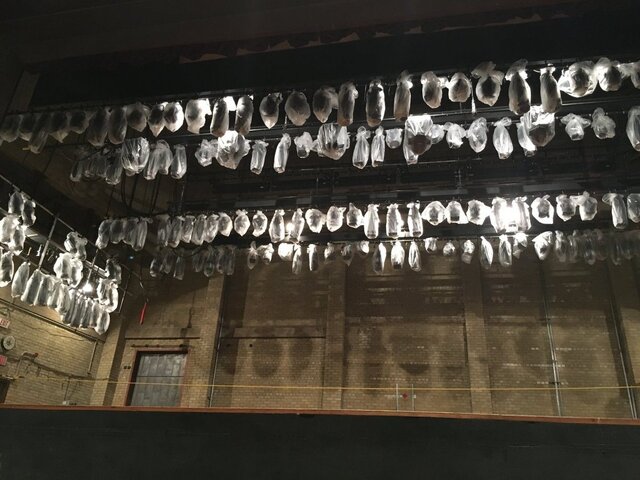It's an ETC system, we are closing for at least 10 mos. for a bunch of repairs. Lots of dust as they remove external concrete ramps and replace HVAC system.
I will be calling ETC as well.
My current thinking
- Ion console and peripherals will go to storage elsewhere.
- Units all stay on Electrics, except we are striking FOH where the reno. work is taking place. Units to stay hung, bagged and zipped tied, a bag of that moisture absorbers stuff added per bag.
- Rack with network switch and UPS ( both to be replaced), Unison and a Net 2 port to be powered down and wrapped in plastic and sealed against dust.
- Dimmers, all Sensor, CEM+, powered down. They are in rooms with doors so no plastic. Maybe remove the CEM's ?
- Removing all softgoods into hampers and storage in basement.
- So no house lights to be provided, contractor can provide temporary if needed.
- We would lower the fire curtain if we had a motor that functioned, so at this point the stage is exposed to renovation dust. Nothing to do about that.
-If they require the loading dock, stage and pit elevator to get stuff out of basement HVAC room, and new stuff into basement, we will require a layer of 1/2 ply be taped down to protect the T&G floor.
- Have no answers as to our facilities office thoughts about protecting the auditorium seats, side wall decorative curtain, main house curtain, etc... we are in the dark with no input on a project we were told starts 7/1.
What am I missing, never done this before.
I will be calling ETC as well.
My current thinking
- Ion console and peripherals will go to storage elsewhere.
- Units all stay on Electrics, except we are striking FOH where the reno. work is taking place. Units to stay hung, bagged and zipped tied, a bag of that moisture absorbers stuff added per bag.
- Rack with network switch and UPS ( both to be replaced), Unison and a Net 2 port to be powered down and wrapped in plastic and sealed against dust.
- Dimmers, all Sensor, CEM+, powered down. They are in rooms with doors so no plastic. Maybe remove the CEM's ?
- Removing all softgoods into hampers and storage in basement.
- So no house lights to be provided, contractor can provide temporary if needed.
- We would lower the fire curtain if we had a motor that functioned, so at this point the stage is exposed to renovation dust. Nothing to do about that.
-If they require the loading dock, stage and pit elevator to get stuff out of basement HVAC room, and new stuff into basement, we will require a layer of 1/2 ply be taped down to protect the T&G floor.
- Have no answers as to our facilities office thoughts about protecting the auditorium seats, side wall decorative curtain, main house curtain, etc... we are in the dark with no input on a project we were told starts 7/1.
What am I missing, never done this before.
Last edited:





